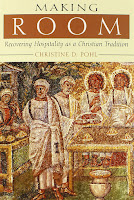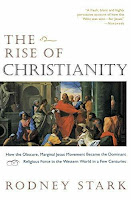I am growing weary of mission rhetoric. My thinking on what defines and comprises “mission” is definitely morphing. I grew up in an evangelical environment that was very much about ‘telling’ the story to the ‘regions beyond’. Perhaps like many of you. It wasn't world-changing. Mostly about changing eternal addresses.
Along the lifetime of my ministry I have encountered my own and the broader church’s narrowness of engagement with broader culture, defined largely by those encounters that would lead to conversions or church attendance. Church mission-rhetoric may be to “love the world as Jesus loves”, or to be "focused on the lost”, but when push comes to shove, the metrics behind whether to keep a program or engagement going is what ultimately reveals the narrow definition of your ‘mission’.
I am a lowly voice among many writers and thinkers who are trying to yell at the church and show a “new, but not new” understanding of the Missio Dei, which embraces
all things in this world as the arena for the restorative force of Gods’ Kingdom. After all, it is ‘all things’ that Christ intends to reconcile to Himself (Colossians 1:20).

How engaged are we with ‘all things’ as defining the mission of God?
The power of God to restore the world is in the loving acts of engagement with the world as it is, in order to see it become what He intends for it. We have a grand and just cause that moves far beyond ‘crossing the line’ to Jesus’ side and enjoying spiritual renewal, to a lifestyle that lives out the ways of the Kingdom of God in front of our society. It’s in that living that the power of the Gospel is experienced by the world. That power is not located exclusively through inner renewal or spiritual insight (which much of the church’s energy is dedicated to provide), but it is in the encounter between the Christ in us and the people and systems of this world.
This is how the early church transformed the world. It was not through evangelistic forays into people groups, but via societal engagements that clearly showed and offered a way of being that stood in an appealing contrast to the surrounding society [1]. Christians lived then, as we do now, within an understanding they were part of a new society, an alternate Kingdom. We live by the rules and ways of that Kingdom, which when expressed in word and deed, cannot help but interact with social, economic and political systems. (How can you read your Gospels and not see this embedded in the words and ways of Jesus?). We are to be part of a social revolution that is the direct (and inevitable) result of a Kingdom way of being. The eventual institutionalization of the early movement of the emerging church (the fate of all movements if they don’t die off completely), has had the effect of walling off this new societal revolution and instead has created some doors for entry, but which now require certain types of keys to gain entry.
We, the community of Christ on this earth will always be in tension over the radical movement outward into the world and the urge to consolidate our efforts into the institutional structures and thinking of the church. Believe me, after all I have said when I say this:
May the tension never leave us. It’s the intention of the gift-mix Jesus gave to the leadership functions of the church. The
apostles, prophets and evangelists are given to call us out of our consolidating tendencies so that we remain focused on living out this new society called the Kingdom in front of (and sometimes as an affront to) the world. Life calls to life. The
shepherds and teachers ground us and keep reminding us that Jesus is the author and finisher of our faith. But rue the days, as we are in now, when we as the Christ-community settle and merely ‘send off’ the apostles, prophets and evangelists to do their work elsewhere (e.g. to “missions”, or para-church organizations, or local social agencies, or to ‘be a light’ in their jobs), while shepherds and teachers keep the non-profit wheels running and people in the pews to pay for the programs & staff that justifies our corporate existence.
This dichotomy,
left unchallenged when all 5 gifts are not informing mission, reinforces to the watching world that the gathered church is NOT a new society living according to new ways of being, but has taken its place alongside other religions of choice, establishing organizational structures for maintaining loyalty and meaning for insiders.
The world is transformed by those who show up.

Harv Matchullis
[1] For an historical look at the sociological reasons for the church’s significant advance to become 50% of the known world by AD 300, read Rodney Starks’ “The Rise of Christianity: How the Obscure, Marginal Jesus Movement Became the Dominant Religious Force in the Western World in a Few Centuries”










